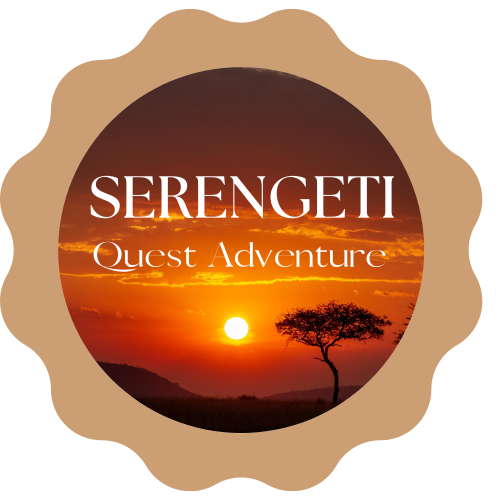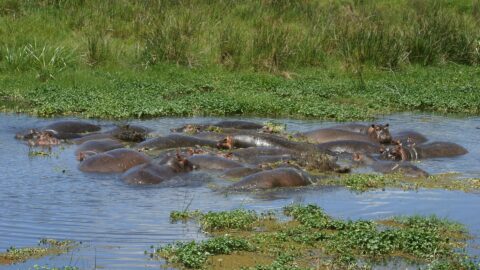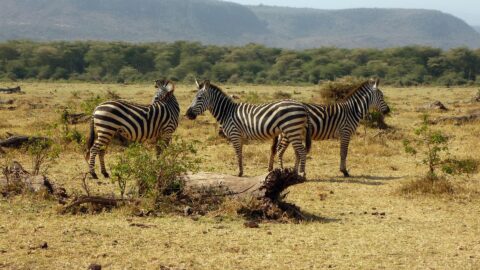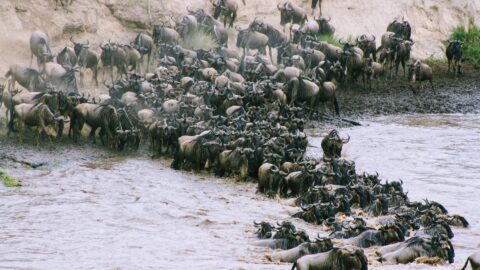7-Day Wildebeest Migration – Ndutu Event
Where to visit?
Summary:
The Ndutu Area in South Serengeti offers an incredible opportunity to witness the calving season with over 500000 newborn wildebeest calves while Serengeti National Park invites you to explore its vast plains teeming with wildlife including the Big Five. The Ngorongoro Crater showcases the world’s largest inactive volcanic caldera, which is home to a dense population of wildlife, and Lake Manyara National Park is renowned for its unique tree-climbing lions and vibrant flamingos.
Tour Schedule
The Wildebeest Migration in Ndutu (Southern Serengeti and the Ngorongoro Conservation Area) is an awe-inspiring event that occurs between December and March. This period marks the calving season, where thousands of wildebeests give birth, attracting predators and offering unmatched wildlife viewing opportunities. Below is a tailored 7-day itinerary to experience this phenomenon:
Day 1: Arrival in Arusha
- Morning/Afternoon: Land at Kilimanjaro International Airport (JRO). Meet your guide and transfer to your hotel.
- Accommodation: Arusha Coffee Lodge or Rivertrees Country Inn, a cozy retreat to relax before your safari.
- Activities: Unwind, enjoy a romantic dinner, and prepare for your adventure.
Day 2: Arusha to Ngorongoro Conservation Area
- Morning: Depart Arusha and drive or fly to the Ngorongoro Conservation Area.
- Activities: En route, visit a Maasai village to learn about their culture and traditions.
- Accommodation: Stay at Ngorongoro Farm House or Ngorongoro Serena Safari Lodge.
- Evening: Enjoy a private dinner overlooking the Ngorongoro highlands.
Day 3-5: Ndutu Plains (Southern Serengeti)
- Morning: Drive to Ndutu, the epicenter of the wildebeest calving season.
- Activities:
- Game Drives: Witness herds of wildebeest, zebras, and antelopes spread across the plains. Look out for newborn calves and predator-prey interactions as lions, cheetahs, and hyenas hunt.
- Optional Walking Safari: Explore the area on foot with a professional guide.
- Photography: Ndutu’s landscapes provide incredible opportunities for stunning photos.
- Accommodation: Luxury tented camps such as:
- Lake Ndutu Luxury Tented Camp
- Serengeti Safari Camp
- Ndutu Under Canvas.
- Evening: Savor bush dinners under the stars, with the sounds of wildlife as your backdrop.
Day 6: Ngorongoro Crater Exploration
- Morning: Drive back to the Ngorongoro Crater for a full-day game drive.
- Activities: Descend into the crater, a UNESCO World Heritage Site, and marvel at its dense concentration of wildlife, including rhinos, lions, and flamingos.
- Accommodation: Return to Ngorongoro Crater Lodge for a luxurious and romantic evening.
Day 7: Return to Arusha
- Morning: Leisurely breakfast with panoramic views of the highlands.
- Midday: Drive or fly back to Arusha.
- Activities: Optional shopping at local markets or cultural tours if time permits.
- Evening: Transfer to Kilimanjaro Airport for your flight home.
Cost Estimates:
The cost for a 7-day wildebeest migration safari typically ranges from $2,500 to $4,500 per person, depending on the level of accommodation and services included. This estimate usually covers:
-
Park fees
-
Accommodation
-
Meals
-
Guide and driver fees
-
Transport in a 4×4 safari vehicle
Safari Add-ons:
-
Hot Air Balloon Safari: Experience the Serengeti from above.
-
Cultural Tours: Visit local Maasai villages and learn about their traditions.
-
Walking Safaris: Explore the parks on foot with a guided walk.
-
Night Game Drives: Experience the nocturnal wildlife.
Book Your Tanzania Safari Today!
Take the first step toward your dream adventure! Contact us now to reserve your spot on this unforgettable wildlife photographic safari today.
Safari FAQs
When is the best time to visit for the calving season?
-
The best time to visit is between January and early March when the wildebeest calving season occurs.
What can I expect to see during the calving season?
-
You can expect to see thousands of newborn wildebeest, zebras, and gazelles. The presence of so many young animals attracts predators like lions, cheetahs, and hyenas.
Where should I stay during the calving season?
-
The best camps for the calving season are located in the Ndutu area, south of the Serengeti.
When should I book my trip for the calving season?
-
It’s advisable to book your trip well in advance, especially if you plan to visit in February, which is the peak of the calving season
Price Includes the following:
✔️ Accommodation in lodges and tented camps
✔️ All meals and bottled water during the safari
✔️ Game drives in a 4x4 safari vehicle with a pop-up roof
✔️ Professional English-speaking safari guide
✔️ Park entry fees for all destinations
✔️ Cultural tour with the Hadzabe tribe if applicable
✔️ Airport transfers
✔️ Daily photographic and wildlife viewing opportunities
✔️ Domestic flights for Arusha Zanzibar transfers
Note: This list of inclusions and exclusions is just a sample and can be altered in the final version to suit client needs and budget
Price Excludes the following:
❌ International and domestic flights
❌ Visa fees for entry into Tanzania
❌ Travel insurance
❌ Alcoholic beverages and personal expenses
❌ Optional activities like hot air balloon safaris
❌ Tips for guides and staff
You may also like this trekking itinerary
Safari Highlights
Close Encounters with Wildlife
Scenic Landscapes
Calving Season Experience
What to Pack
- Lightweight clothing for warm days
- Warm layers for cooler evenings
- Comfortable walking shoes
- Sun hat and sunglasses
- Binoculars for wildlife viewing
- Camera with extra batteries
- Insect repellent
- Sunscreen with high SPF
- Reusable water bottle
- Personal toiletries
- First aid kit
- Travel insurance documents
- Guidebook or map
- Snacks for the journey
- Power bank for charging devices
- Notebook and pen for journaling
- Lightweight backpack
- Travel pillow for comfort




